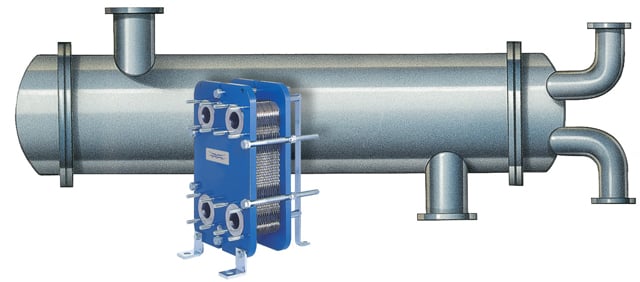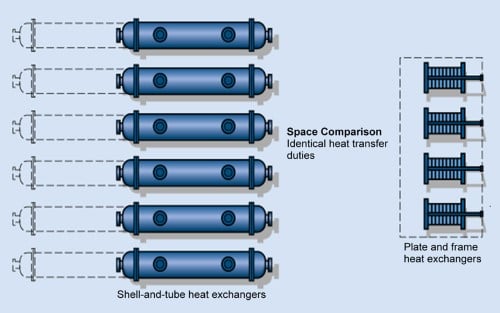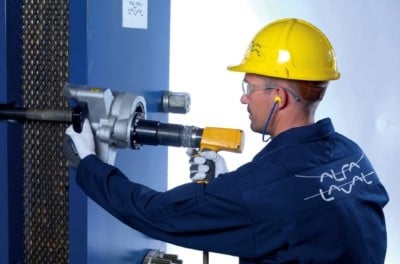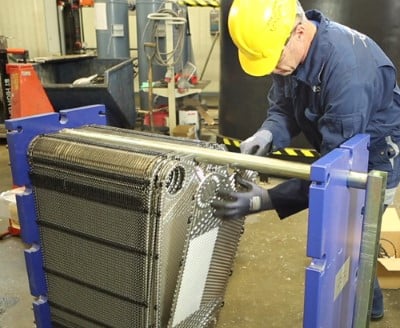
While some industry professionals are hesitant to stray from traditional shell-and-tube heat exchangers, here are five reasons why you should be using compact plate heat exchangers instead.
Plate heat exchangers are up to five times more efficient than shell-and-tube designs with approach temperatures as close as 1°F. Heat recovery can be increased substantially by simply exchanging existing shell-and-tubes for compact heat exchangers. The result is more energy being put back to use, energy that would otherwise have gone to waste.
Shell-and-tube heat exchangers use significantly more floor space as plate heat exchangers (as shown in the illustration below).
The compact, versatile design of plate heat exchangers means that transportation, erection and installation costs are all drastically reduced compared to conventional shell-and-tube units.

 High quality plate-and-frame heat exchangers can operate efficiency for over ten years without maintenance.
High quality plate-and-frame heat exchangers can operate efficiency for over ten years without maintenance.
The heat transfer surfaces are easily accessible for inspection or mechanical cleaning, simply by removing the tightening bolts and rolling back the pressure plate. And special corrugated plate patterns ensure a high degree of turbulence over the whole plate, which not only reduces fouling but also makes cleaning very effective.
Frames can also be opened using standard tools, and there are no tube bundles to be pulled.
Learn more about Servicing GPHEs
Learn more about how plate heat exchangers work

Plate heat exchangers make it easy to adjust capacity to meet changing needs, simply by adding or removing plates, while retaining the existing frame. This is a major advantage in relation to shell-and-tube units, where capacity is fixed at the level decided on at the time of installation.
Plate heat exchangers weigh less than 1/16th the total weight of shell-and-tube exchangers and use 1/10th the floor space. That means immediate savings on shipping, handling, and installation costs. And, PHEs can be assembled and disassembled on-site.